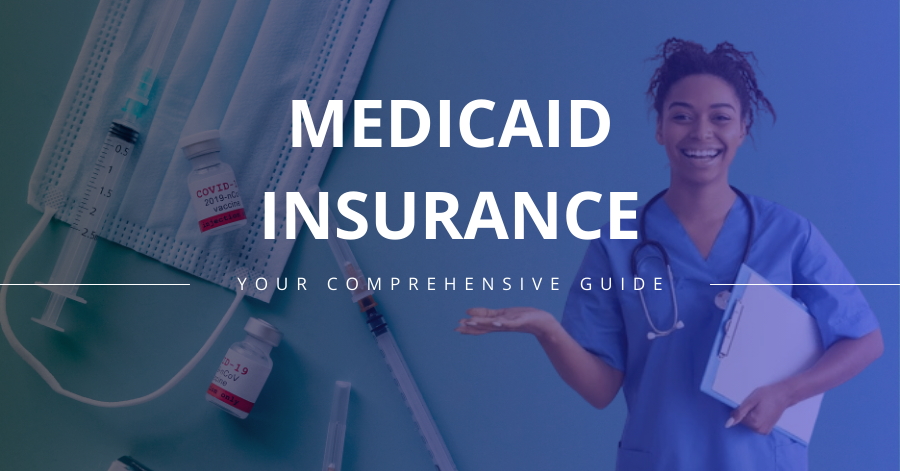If you’ve ever navigated the world of health insurance, you know it can be overwhelming, but millions of Americans need to know what Medicaid insurance is all about. Medicaid is a lifeline and a lifeline for many who might otherwise go without. This guide will walk you through everything you need to know, regardless of whether you’re a first-time applicant, a long-time beneficiary, or someone who recently faced issues such as losing a Medicaid card. You’ll learn by the end of this Medicaid insurance tutorial, the benefits of Medicaid insurance, and how to deal with cancellations and replacements.
What is Medicaid Insurance?
Medicaid is a federal and state program that provides health coverage to low-income people. It was founded in 1965 to meet the ever-growing need for accessible healthcare for vulnerable populations. This is a critical safety net to make sure that millions of Americans who otherwise would not be able to afford healthcare, get the care that they need.
A lot of services are covered by Medicaid including doctor visits, hospital stays, preventive care, long-term care, prescription medications, and more. In addition, it provides various specialized services such as maternity care, pediatric services, and mental health support as applicable in the state. It is therefore an invaluable resource for those with chronic conditions or who are seen on a regular basis by medical practitioners.
Medicaid is different than Medicare because it is based on income and disability status as well as household size and other state criteria for eligibility. Medicaid programs, though federally funded, are state-administered and may differ as to specific benefits and eligibility requirements.
Benefits and Eligibility Criteria for Medicaid Insurance
Medicaid insurance offers numerous benefits, making it a crucial safety net for millions:
1- Comprehensive Coverage:
Essential health benefits on Medicaid include preventive care, maternity care, mental health services, and prescription drugs. This means that everyone will get treatment for acute as well as chronic health conditions without financial strain. However, beyond these basics, Medicaid often pays for services such as rehabilitation therapy, substance abuse treatment, and long-term care — all of which cover a wide range of healthcare needs.
2- Affordability:
Medicaid is free or virtually free for eligible individuals. That means it’s available to low-income families, people with disabilities, and seniors who might struggle to pay for private insurance. Enrollees can afford to focus on their health without worrying about financial difficulty in the absence of premiums or the cost of high deductibles.
3- Specialized Programs:
Additional services, such as dental care, vision care, and home healthcare, are provided in many states. These specific programs address certain populations, for example, seniors who are in need of in-home assistance or children in need of orthodontic care. Even some states offer transportation to medical appointments to ensure that logistical obstacles are no barrier to care.
Steps for How to Cancel Medicaid Insurance
You might want to cancel your Medicaid insurance because you’re gaining employer-sponsored coverage, or you moved to a new state. Here’s a step-by-step guide:
Step 1: Contact your state Medicaid office
The first thing you should do is contact your state’s Medicaid office. They have all contact details on their official website as well as on their toll-free customer service number. By speaking directly to a representative, you can find out exactly what the procedure looks like for your state.
Step 2: Provide Necessary Information
You’ll be ready to provide your Medicaid ID, personal information, and why you are canceling. Adding to your information, such as your Social Security number or case number, might speed up the process.
Step 3: Submit a Formal Request
Most states require you to submit a written request or complete a cancellation form. This formal step makes sure your intent to cancel is properly recorded and there are no future disputes.
Step 4: Verify Cancellation
Make sure that when you cancel your coverage, it’s canceled and there are no surprises or confusion with unexpected charges. To have written proof, request a confirmation letter or email from your Medicaid office.
What to Do If You Lost Medicaid and Need Insurance
But if you lose Medicaid coverage, it doesn’t have to be daunting. You shouldn’t wait until the last minute to act, because you mustn’t have a coverage gap, and if you do, you can find yourself financially exposed if you get sick and require medical expenses.
1- Evaluate Eligibility for Re-enrollment
However, even if your income or circumstances have changed you still may qualify for Medicaid. To review updated eligibility requirements and apply as soon as possible, check your state’s Medicaid office.
2- Explore Marketplace Plans
Subsidy plans may be available through the Health Insurance Marketplace which will help to lower costs. You should carefully compare available options to get a plan that fits your budget while satisfying your need for healthcare.
Steps to Take if You Lost Your Medicaid Insurance Card
Losing your Medicaid insurance card can disrupt access to care, but there are efficient steps to address this issue and continue receiving your health benefits without interruptions.
1- Notify Your Medicaid Office
Report the loss to your state’s Medicaid office immediately to ensure your coverage details are safeguarded against misuse. Providing prompt notice can also help expedite the process of getting a replacement card.
2- Request a New Card
When contacting your Medicaid office, be sure to ask, “How to get a new insurance card Medicaid,” and clarify the most efficient method available in your state. Most states offer multiple options, such as making the request online, by phone, or in person at a local office. Confirm the estimated delivery time for your replacement card during this step.
3- Access Temporary Documentation
While waiting for the new card, request a temporary proof of coverage to avoid delays in receiving medical services. Temporary documentation can usually be obtained quickly and is sufficient to verify your benefits with healthcare providers during emergencies.
Alternatives to Medicaid: Exploring Insurance Like Medicaid
If you don’t qualify for Medicaid or need other options, consider these alternatives:
1- Children’s Health Insurance Program (CHIP)
CHIP, or the Children’s Health Insurance Program, is a program to insure children in families that are too poor for Medicaid but too rich for private insurance. The program makes sure that children get the necessary preventive and medical care without damaging their finances. State eligibility criteria vary so always check the local guidelines.
2- Marketplace Plans with Subsidies
Eligible individuals and families can also see significant premium and out-of-pocket cost reductions through Affordable Care Act (ACA) Marketplace plans. These plans are a good choice for those moving from Medicaid, based on subsidies based on household income and family size. To ensure timely coverage it’s best to enroll during the open enrollment period or during a special enrollment period.
3- Community Health Programs
Low-cost healthcare services are available to individuals and families who can not afford traditional insurance at many nonprofit organizations and clinics. Preventive care is often the major focus of these programs, which means they are great resources for keeping you healthy. Some clinics even have sliding scale fees based on your income to make services even more accessible.
4- Medicaid Replacement Insurance
There are some plans that Medicaid provides, but that are also offered by private insurers — plans that are similar to Medicaid in both coverage and cost structure. These plans are especially good for people who aren’t eligible for Medicaid anymore but still need cheap healthcare. It’s a good idea to compare multiple options so you can be sure that you’re getting the coverage you need and that it fits into your financial circumstances.
Understanding Medicaid Replacement Insurance
Private plans that mimic Medicaid coverage are called Medicaid replacement insurance. Such plans, often available through managed care organizations (MCOs), seek to be both cost-reducing and comprehensive at the same time. They’re not a direct replacement for Medicaid, but they can be useful for someone leaving the program. Like Medicaid, these plans usually include a broad array of medical services such as doctor visits, hospital stays, and prescription medications. However, there will be some differences in the details of coverage, eligibility requirements, and costs. Knowing about these differences is important for those thinking about a Medicaid replacement plan as it can affect not only how much you spend out of pocket but also how easy it is to get care. Also, the network of providers associated with the replacement plan may or may not be the same as the original Medicaid network.
Why Having Health Insurance Like Medicaid is Essential
US healthcare costs can be astronomical. That’s why health insurance such as Medicaid provides access to required medical services without financial liability. It shields patients from the financial havoc that a health crisis can bring, by protecting them when they need it most and promoting better health when they are not in crisis. It is now important to reconsider such coverage, because without it individuals may be forced to delay or forgo treatments, which may result in worsening health conditions and higher long-term costs. Along with reducing disparities in the availability of healthcare, Medicaid like insurance also reduces disparities in its use, covering people in low-income households who otherwise wouldn’t have access to care. Medicaid or similar insurance is important for the physical and financial well-being of those eligible; it’s part of the healthcare system.
Conclusion
Medicaid insurance is more than a program; it’s a lifeline to millions. It’s all about knowing what it is and what it can do, how to handle challenges like losing your card or getting canceled, and what alternatives there are available — being empowered with that knowledge, you can make informed decisions about your healthcare. If you can afford to have health insurance like Medicaid, you get access to affordable, necessary care, whether you’re enrolled, looking for other options, or helping someone else do the same. Don’t hesitate, start your healthcare journey right now!

